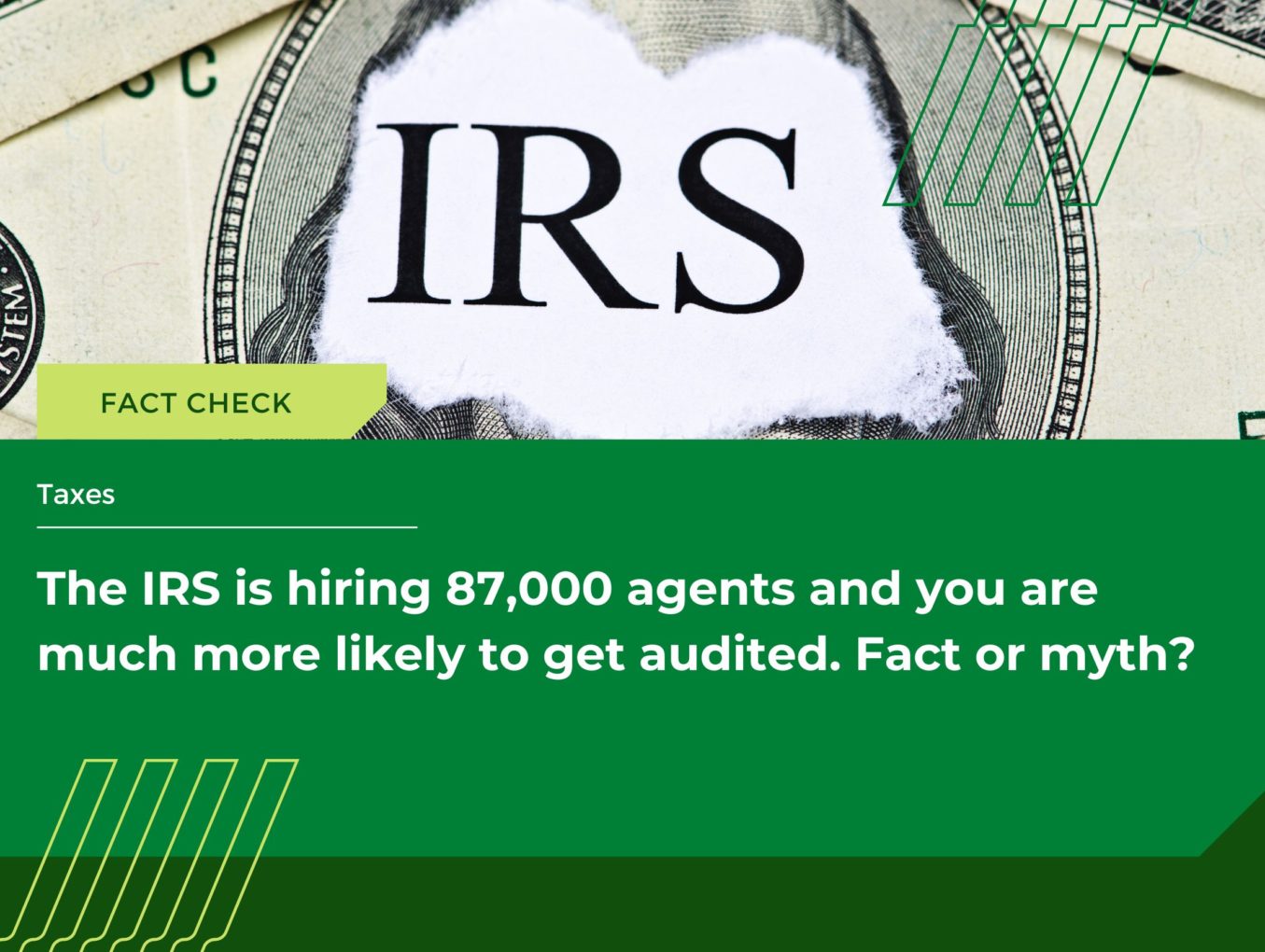In August 2022, President Joe Biden signed the Inflation Reduction Act of 2022. One of the main elements of the Act is increasing IRS tax enforcement and IRS audits.
Keep reading to find out how the Inflation Reduction Act may impact your taxes and your chances of being audited.
What Is the Inflation Reduction Act of 2022?
The Inflation Reduction Act of 2022 aims to increase funding in several areas to make life more affordable for Americans.
Overall, the Act hopes to curb increasing inflation by:
-
• Reducing the deficit
• Making medical prescriptions affordable
• Promoting clean energy
• Investing in domestic energy production
• Creating a 15% corporate minimum tax rate
• Increasing investment in the IRS to allow for additional tax enforcement
• Affordable Care Act (ACA) subsidy extension
How Much Funding Will the IRS Receive?
Under the Inflation Reduction Act of 2022, the IRS will receive $80 billion in increased funding over 10 years. Historically, the IRS has complained that it’s severely underfunded and unable to keep up with tax enforcement at a level it would like to. The Treasury Department estimates the IRS will be able to hire 87,000 new agents with these funds.
Is Increasing Audits a Top IRS Priority?
The big question on everyone’s minds: is the IRS budget increase going to increase tax audits? The short answer is yes, but more likely for high-earning individuals, partnerships, and corporations.
We’ll discuss who is likely to audited in more detail below. Audits aren’t the only top priority for the IRS with additional funding. The IRS has promised to use its new budget for five areas:
-
• Improve IRS customer service
• Invest in new technology
• Increase tax audits of the wealthy
• Chase offshore tax evasion
• Rebuild criminal tax investigations
Who Is More Likely to Be Audited with More IRS Enforcement?
For most Americans, the chances of being audited aren’t really going to increase. The IRS doesn’t focus its resources on coming after the average taxpayer. It always has been – and will continue to be – in the government’s best interest to go after the highly wealthy who are trying to get away with not paying hundreds of thousands up to millions of dollars in taxes.
And this point was further reinforced by Treasury Secretary Janet Yellen. Yellen said, “…enforcement resources will not be used to raise audit rates for households making under $400,000 a year relative to historical levels. In fact, we expect audit rates for honest taxpayers to decline, once the IRS has the right technological infrastructure in place.”
The government may claim to go after the wealthy all the time, but you can rest assured that the IRS is one organization that will follow through on that claim.
This budget increase should receive a stamp of approval from most Americans. High-income earners will be examined to ensure they’re paying their taxes, and the risk of tax audits should stay the same or decrease for those making less than $400,000.
How Much More Taxes Does the IRS Expect to Collect from Additional Audits?
With more audits, the IRS estimates it’ll collect an additional $180.4 billion in tax revenue from 2022-2031.
They know this money is out there and have been trying to collect it for years. The IRS estimates that there is a $600 billion tax gap – the difference between what the IRS should receive from taxes and how much it actually collects.
Unfortunately, the government has previously underfunded and cut from the IRS budget, which has limited the resources available to conduct thorough tax audits on the wealthy. From 2010 to 2019, the number of audits completed by the IRS dropped by 70 percent. And those with an income of $200,000 or more saw the most considerable decrease in chances of being audited.
As mentioned earlier, the IRS plans to hire an additional 87,000 agents to begin more tax audits with its newly approved funding.
6 Simple Questions. Free Evaluation.
Join our Newsletter
Enter your email address to join our free newsletter. Get all the latest news and updates.

